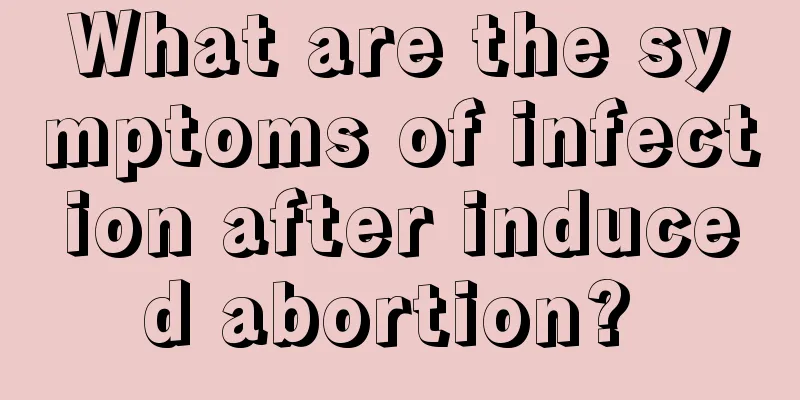Should you "cover" or "dissipate" when you have a fever?

|
Sweating is just one way for the human body to cool down. People should understand that sweating reduces fever because the disease is cured, not that the disease is cured because of sweating. Therefore, do not rely too much on sweating to achieve a cooling effect. The symptom of fever is not unfamiliar to everyone. People have racked their brains to come up with several ways to deal with this frequently occurring symptom. Some people are very fond of these folk remedies. When they are sick with fever and chills, they just pick up a thick quilt and cover the patient with it. After a night of keeping warm, I broke out in a sweat and the fever was really gone. Whenever I think of this, I have a question: when you have a fever, "covering your face" can reduce the fever. Is this really right? Should I "cover" or "dissipate" when I have a fever? There are indeed several methods circulating among the people to reduce fever. Some say cover your feet with a blanket, some say drink a bowl of ginger soup, some say soak your feet in hot water, and so on. Based on the above statements, the essence is sweating. So, to discuss the relationship between sweating and antipyretic effects, we need to carefully study the mechanism of fever and antipyretic. Fever is actually the body's "cleaning" behavior The human body temperature is regulated by the thermoregulatory center located in the hypothalamus, which maintains the normal body temperature at a constant 37°C, providing a stable environment for the normal functions of various organs, tissues and cells. The body temperature changes to a certain extent, and various functions also change accordingly. At this time, the human body's metabolism will speed up, and the immune system will produce more white blood cells, macrophages, and inflammatory factors to eliminate invading substances from the human body. In this regard, occasional fever can activate the body's immune system and is beneficial to enhancing the body's resistance. However, when the human body has a continuous high fever of over 40°C, the body remains in a high metabolic state, causing the body's nutrients to be depleted. At this time, the function of the immune system is also affected and weakened. At this time, the patient is in a weak state and the functions of various organs are affected. On the one hand, it increases the burden on the organs and may even induce dysfunction of the corresponding organs. On the other hand, it causes tissue damage, causing swelling and degeneration of organ tissues such as the kidneys, liver, and myocardium. Therefore, it is particularly important to reduce the fever when it is high. The human body sweats to lower body temperature when it overcomes disease Generally speaking, fever is a battle between the human immune system and disease. When the immune army eliminates the invading substances, the body's functions return to normal. At this time, the body temperature regulation center of the hypothalamus will issue a command to gradually reduce the elevated body temperature to normal. At this time, the "sweating" phenomenon occurs, and the evaporation of sweat takes away the body's heat, restoring the patient's body temperature to normal. In other words, after the human body defeats the disease, it restores its body temperature to normal through sweating, rather than what people think (sweating can cure the disease). Of course, we can imagine that the three phenomena of fever, sweating and fever reduction are always linked together, so people naturally come up with such a statement, which is understandable. However, with modern medical knowledge so advanced, people should increase their personal awareness and understand that sweating and fever reduction occur because the disease is cured, not because the disease is cured due to sweating and fever reduction. Is it "covering" or "dispersing"? You will understand after reading it. There are usually two types of common fevers: low- to moderate-level fever and high fever. If the body temperature is lower than 38.5℃ and the patient is in good spirits, he or she generally does not need to take antipyretics. This is because an appropriately increased body temperature can enhance the patient's immunity and help the body resist invading pathogens. At this time, people can control body temperature through physical cooling methods, such as wet compress cooling, applying a wet and cool towel on the patient's forehead and changing it frequently; or using alcohol baths, wiping the body with 25%~50% concentration of alcohol, and letting its evaporation take away the body's heat. Of course, there are doctors abroad who recommend that patients take off clothes and other cooling methods. We can use them selectively according to our own circumstances. At the same time, when you have a fever, the human body is in a high metabolic state and needs a lot of water. Therefore, drinking more water can not only meet the body's metabolic needs, but also take away a lot of heat from the body during sweating and excretion on the body surface, which helps to reduce the temperature. Patients also need to make good arrangements for three meals a day to ensure that the food is nutritious, increase the body's nutritional supplements, and help people overcome the disease. However, when the human body has a fever above 38.5℃, or below 38.5℃, but the patient is in a bad mental state, feels uncomfortable or drowsy, it is necessary to take antipyretics in time and use physical cooling methods. Take antipyretics according to doctor's orders, and the course of treatment generally does not exceed 3 days. If the fever persists after 3 days, it is best to go to the hospital to find out the cause. The final tangled result After studying the mechanisms of fever and fever reduction, we would like to remind people that it is understandable to cover yourself with a blanket when you have a fever and the body feels cold, but do not rely too much on sweating in this way to achieve a cooling effect. Fever should be treated from the source. Pay attention to increasing immunity, replenishing water and nutrition. Once the disease is defeated, the fever will naturally subside. In addition, we would like to remind everyone that fever is only a symptom of an illness and may have many causes. If the fever persists for a long time, the cause may be complicated. At this time, it is not advisable to reduce the temperature blindly, so as not to cover up the disease itself. Instead, you should seek help from a doctor to find out the cause of the fever and treat it symptomatically. |
<<: Does the bigger the fist, the longer the life?
>>: Can drinking chrysanthemum tea help lose weight
Recommend
What are the causes of high incidence of osteosarcoma
Before introducing the causes of the high inciden...
Which department should patients with rectal cancer go to
To prevent rectal cancer, you must first understa...
What are the early symptoms of rectal cancer
Rectal cancer is a common tumor disease that occu...
What are the treatments for eye stones
Eye stones are relatively unfamiliar to many peop...
What fruits are good for liver cancer? Eat these fruits when diagnosed with liver cancer
Nowadays, there are many patients suffering from ...
What is the treatment for nasopharyngeal carcinoma and when is the best time to treat it
What is the treatment for nasopharyngeal carcinom...
Are white mushrooms poisonous?
Mushrooms have extremely high nutritional value a...
What are the effects of red quinoa
What are the effects of red quinoa? Maybe many pe...
What medicine is good for detoxification
If the toxins in the body cannot be discharged in...
Is rust inhibitor harmful to human body?
Rust inhibitors are not only frequently used in i...
Can sciatica heal on its own without treatment?
Sciatica will only make the pain more severe if i...
Can I have a massage during menstruation?
Many women always experience physical fatigue, ba...
What is the reason for excessive sweating on the head
If your head is always sweating, you should pay a...
Characteristics of early vomiting in gastric cancer
Gastric cancer is a malignant tumor that seriousl...
Massage techniques for lifting sagging face
Most people hope that they can always have a youn...









